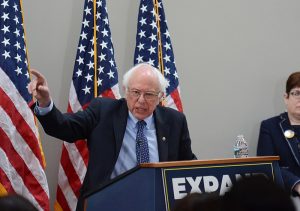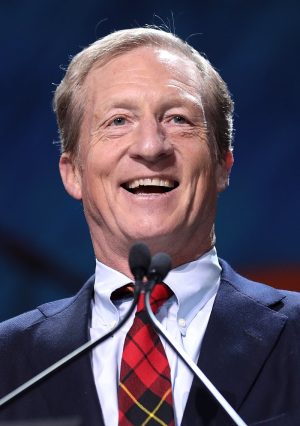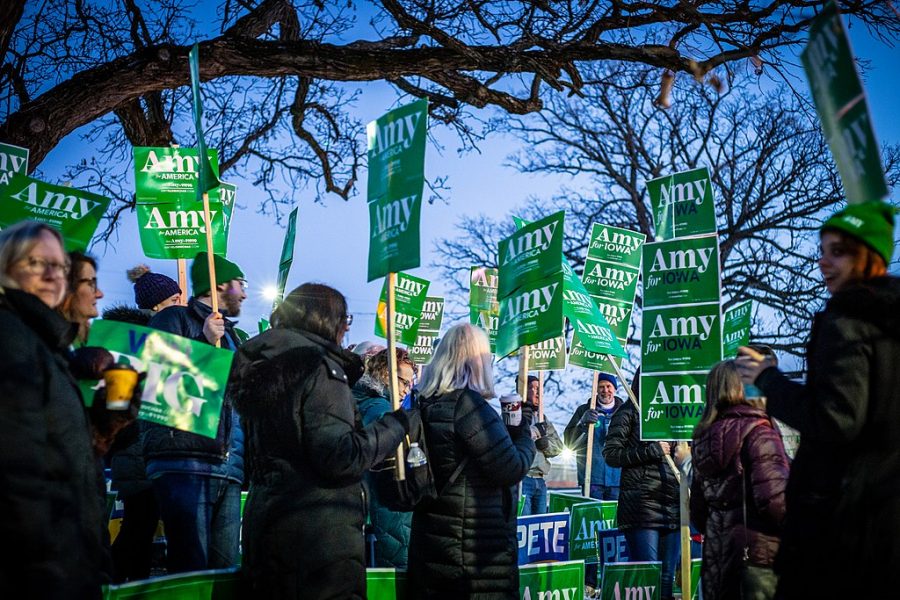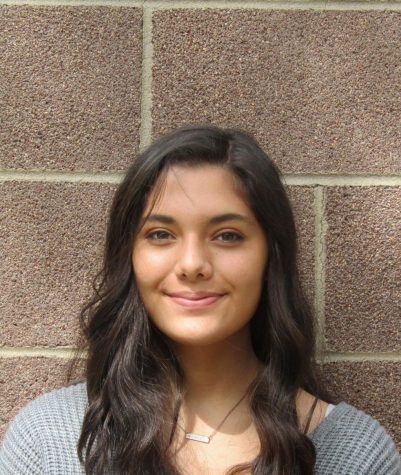Six Candidates Participate in the Democratic Primary Debate in Des Moines, Iowa on January 14, 2020
January 20, 2020
On January 14, CNN hosted the seventh Presidential Debate at Drake University in Iowa between six Democratic candidates. The debate covered a variety of topics, and there was a focus on future alliances, trade, climate, and healthcare policies.

Time Magazine reported, ¨On Friday, a Des Moines Register poll of likely Democratic caucus-goers put Sanders in the lead for the first time, vindicating a campaign that has held a steady approach throughout the primary as others have seen a decline in their support,” ( Time).
Over the course of the debate each of the six candidates was addressed with questions surrounding their campaign, given a chance to respond to others running, and in their opening and closing statements pinpoint the focuses of their

campaigns.
One of the topics generally agreed on throughout the debate was the future implementation of alliances. Warren, Buttigieg, Biden, Sanders, businessman Tom Steyer, and Senator Amy Klobuchar, all mentioned throughout the debate on various topics, that the reliance and building on alliances would be a formative part of their plans as a potential president.
Trade came up frequently as well, but there was some dispute between the candidates’ policies surrounding this topic. Especially with the new USMCA proposed trade agreement between the United States, Mexico, and Canada. While Warren, Klobuchar, and Buttigieg supported the agreement because of the relief it offered to American workers, Sanders was against it. Even though he admitted it made “modest improvements,” he felt there was more that was needed in order to make more drastic improvements.

Senator Elizabeth Warren held her position throughout the debate that she wanted to act decisively. Her plan for increasing access to healthcare included building on the Affordable Care Act, getting more money from big companies, lowering drug costs, and doing this without raising taxes.
There was also an overall consensus that healthcare should be more accessible; however, each person presented a different plan, with a following plan for financial backing, as to how to present more easily accessible and affordable healthcare. Steyer suggests that big corporations are spending too much and offers that the government should manufacture drugs to lower the prices by creating competition for these corporations, as well as developing the Affordable Care Act.
Buttigieg’s plan would automatically enroll uninsured Americans who don’t already have a plan to make sure that all Americans are insured. Sanders proposes a “Medicare for All” plan, while Biden would rebuild Obamacare and reduce drug costs, and agrees with some of the other candidates to develop the Affordable Care Act.
Climate issues were mentioned repeatedly by multiple candidates as an important issue. Throughout the debate, candidates tied other issues and their campaigns to resolving climate concerns, and putting more emphasis on problems like the fires in Australia. Steyer specifically stated that the climate was one of the most important issues to him as a presidential candidate, to which Buttigieg agreed.
Leading up to this debate, most candidates have been campaigning for almost a year. The debating started with the first Democratic primary on June 26 and June 27 in Miami, Florida. The second round of debates was in Detroit on July 30 and 31, and the third debate was on September 12 in Houston, Texas. The fourth debate was on October 15 in Westerville, Ohio on November 20 in Atlanta, and the sixth at Loyola Marymount University in Los Angeles on December 19, ( Here’s What You Need To Know About The 2020 Democratic Primary Debates).
These debates helped to narrow down Democratic candidates to the 6 that participated in the Debate on the 14 and put four in the lead: Senator Bernie Sanders, Senator Elizabeth Warren, Mayor Pete Buttigieg, and former Vice President Joe Biden. And polls of the future voters helped get a further understanding of where certain candidates stand.
Other topics came up throughout the debate, like directions for the economy, taxation of the wealthy, education, decisions over troops in Iran, and the general ability of the candidate to bring the party together. But what did this debate mean for the candidates? According to Levi Bartholomew, History teacher at Dakota Ridge High School, it didn’t bring up many points that citizens didn’t already know about those running.
“I don’t think we’re seeing anything new in terms of what they’ve said in previous debates- their opinions on most ideas are pretty clear with what they want,” Bartholomew said. “I don’t know if any of them really set themselves really set themselves apart or changed a lot of peoples minds nationally and we’ll have to wait and see.”
As the candidates move forward, they take the topics of this debate into account and look to the next one which is currently set to take place on February 7.



